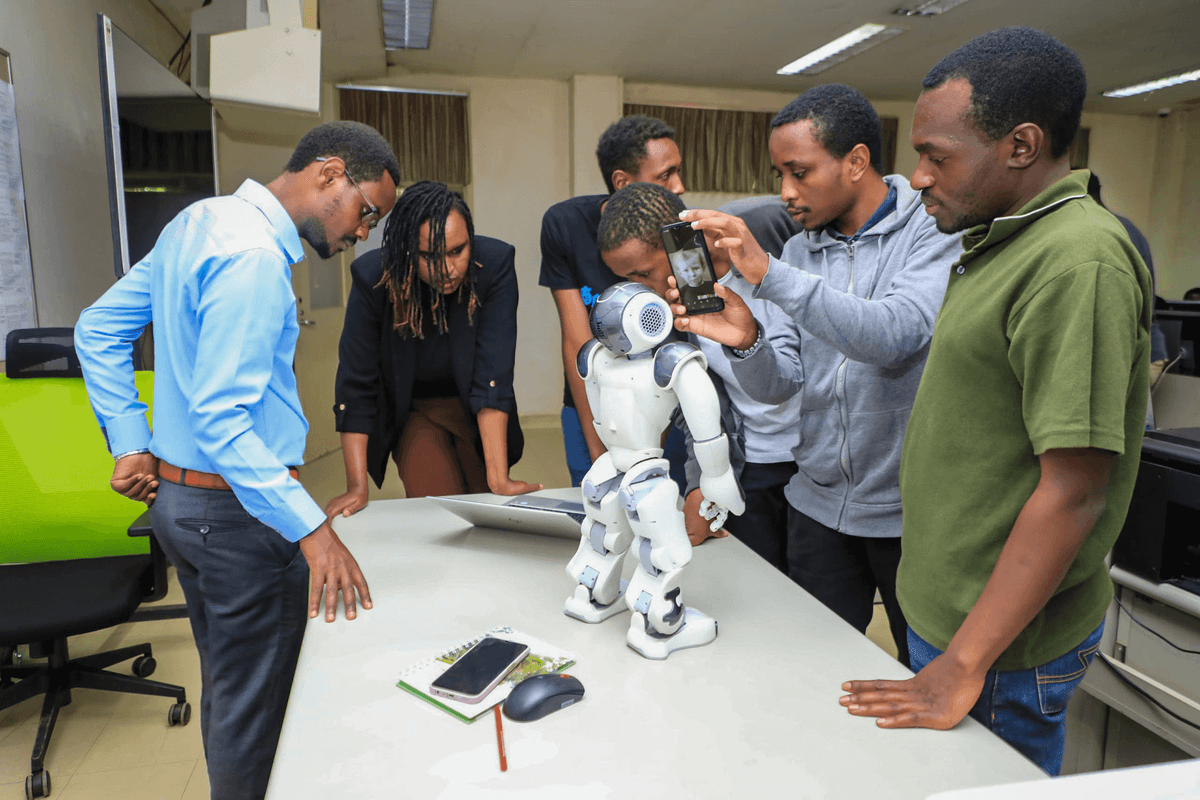Responsible Computing
RCC Projects
Teaching Responsible Computing (RC) Through Designing Robotics Applications to Kenyan Computer Science Students
JKUAT received a 2023 Responsible Computing Challenge (RCC) award from the Mozilla Foundation to train and embed ethical considerations into the development of robotics.
This project focuses on teaching responsible computing through designing robot applications.

Mainstreaming Responsible Computing (RC) in ICT Student Innovations - with a Focus on Final Year ICT Student Projects

Design and Use a Responsible Computing Industry-led Final-year Project Framework.

STUDENTS' DESIGNED PROJECTS
Designing a Tourist Assistant Robot to Facilitate Tourism
The prototype was designed to enhance tourists' interactions with locals and appreciation of Kenyan culture, language, and wildlife. The robot uses the speech recognition module of the NAO robot with scripted dialogues to introduce tourists to important cultural elements, narrate captivating Kenyan folk tales, and provide information about wildlife. It also conducts language practice sessions, immersing tourists in the local language and culture. In designing and developing this prototype, the students considered three responsible computing principles: inclusivity and accessibility, cultural and social sensitivity, and societal impact.

Designing a Robotic Assistant Secretary for Institutions
The robotic campus secretary assistant was designed for administrative use on campus. The robot can be positioned at the entrance of the office, to answer frequently asked questions( e.g., about exam dates, labs, games, and upcoming events like career talks and hackathons). It uses face recognition and speech recognition modules of the NAO robot. In designing this application , the student considered a number of responsible computing principles including inclusivity and accessibility , privacy, and empathy to design for inclusivity and accessibility, the students reduced the speech recognition confidence threshold to accommodate non-native English speakers and also included an option to adjust the robot volume for individuals with hearing challenges.

Designing a Robot Companion for Children to Connect them to their Caregivers
This design project focuses on development of fair and inclusive intelligent models. In this project, students designed and developed a robot companion that uses facial recognition to detect children’s emotions and respond through appropriate songs depending on the emotion detected. It would also send a notification to the caregiver through email. In designing this application, the students considered inclusivity, data privacy, empathy, and societal impact.

Recent Events


Mozilla pledges to support JKUAT in training to enhance Responsible Computing (RCC) capacity.
During a visit to the university on Wednesday, February 28, 2024, Dr. Mbogho revealed developments stemming from JKUAT's successful acquisition of two Mozilla grants: Teaching Responsible Computing Using Robotics and Mainstreaming Responsible Computing in ICT Student Innovations. Click here for more.
Read more

Integrating ethical perspectives within robotics curriculum
JKUAT is successfully cultivating the core values of RCC by introducing undergraduates to ethical perspectives within BSc Computer Science and BSc Technology courses. Their goal? Equipping the next generation of tech builders with the critical skills to develop more inclusive, healthier, and safer digital tools.
Read more